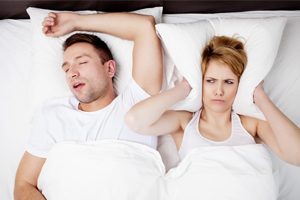 Live your dream of a good night’s sleep
Live your dream of a good night’s sleep
Good sleepers have a routine that doesn’t change, even on weekends: lights out at the same time, alarm buzzing at the same time. They don’t use caffeine late in the day or rely on alcohol or sleeping pills at bedtime.
They exercise daily, and start relaxing two hours before bedtime.
About half of all people over 65 report that they used to experience a well night’s rest, but now they do not. It could be lack of exercise, less exposure to natural light, changes in diet or in the body’s production of sleep-regulating chemicals, or plain old pain. For women, add menopause.
The buzz on snoring and sleep apnea are two of the most common nighttime disorders.
Sleep apnea is a serious condition in which loud snoring alternates with breathing stoppages when your tongue or soft palate relax and sag into the airway. Untreated, apnea can lead to high blood pressure, strokes, coronary artery disease, psychiatric problems, impaired memory, and heart attacks.
Snoring and apnea are often treatable. Ask us for suggestions.
A pea under her mattress kept the fairy tale princess awake. Today it’s poor sleep habits, physiological changes, or sleep disorders.

